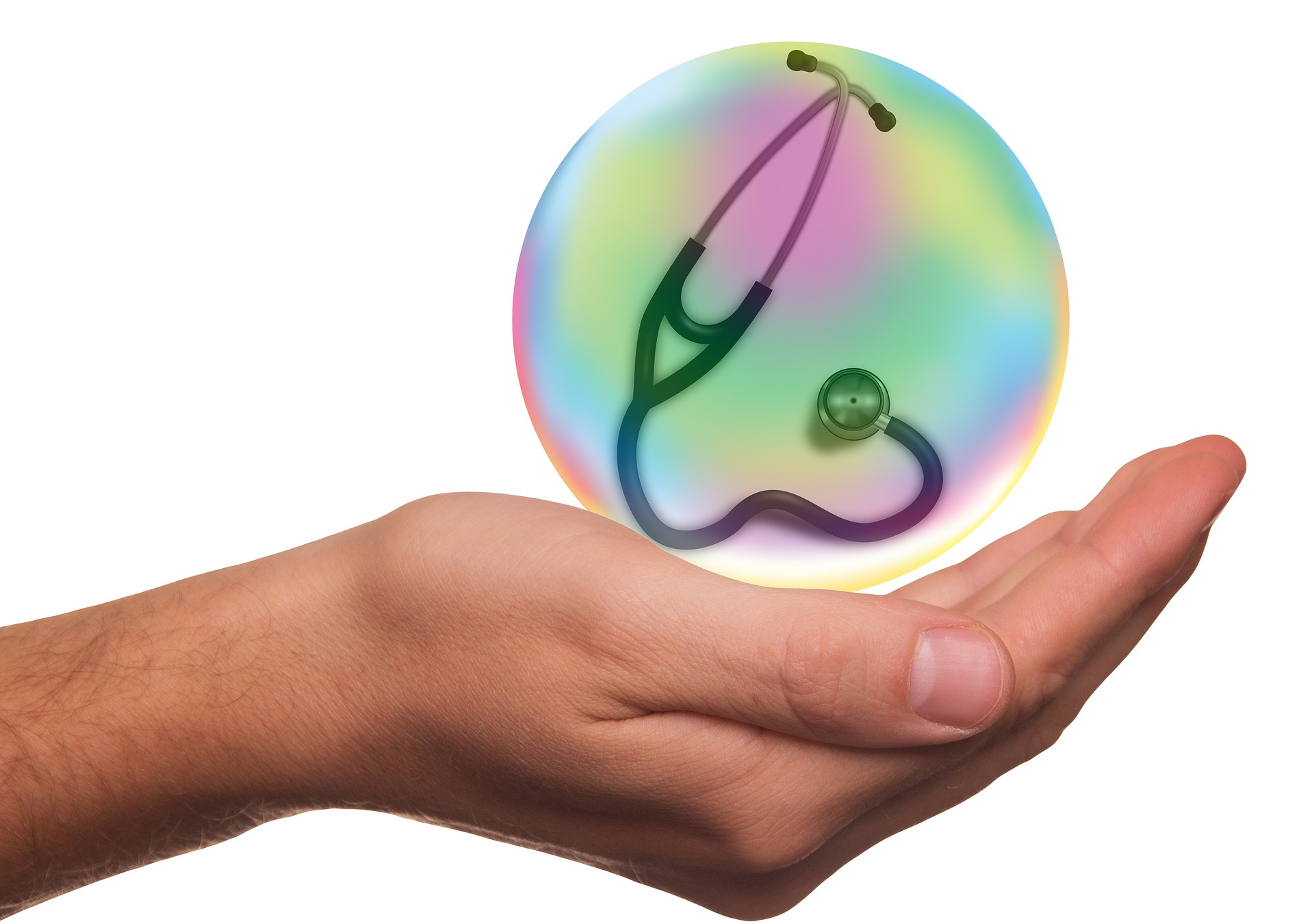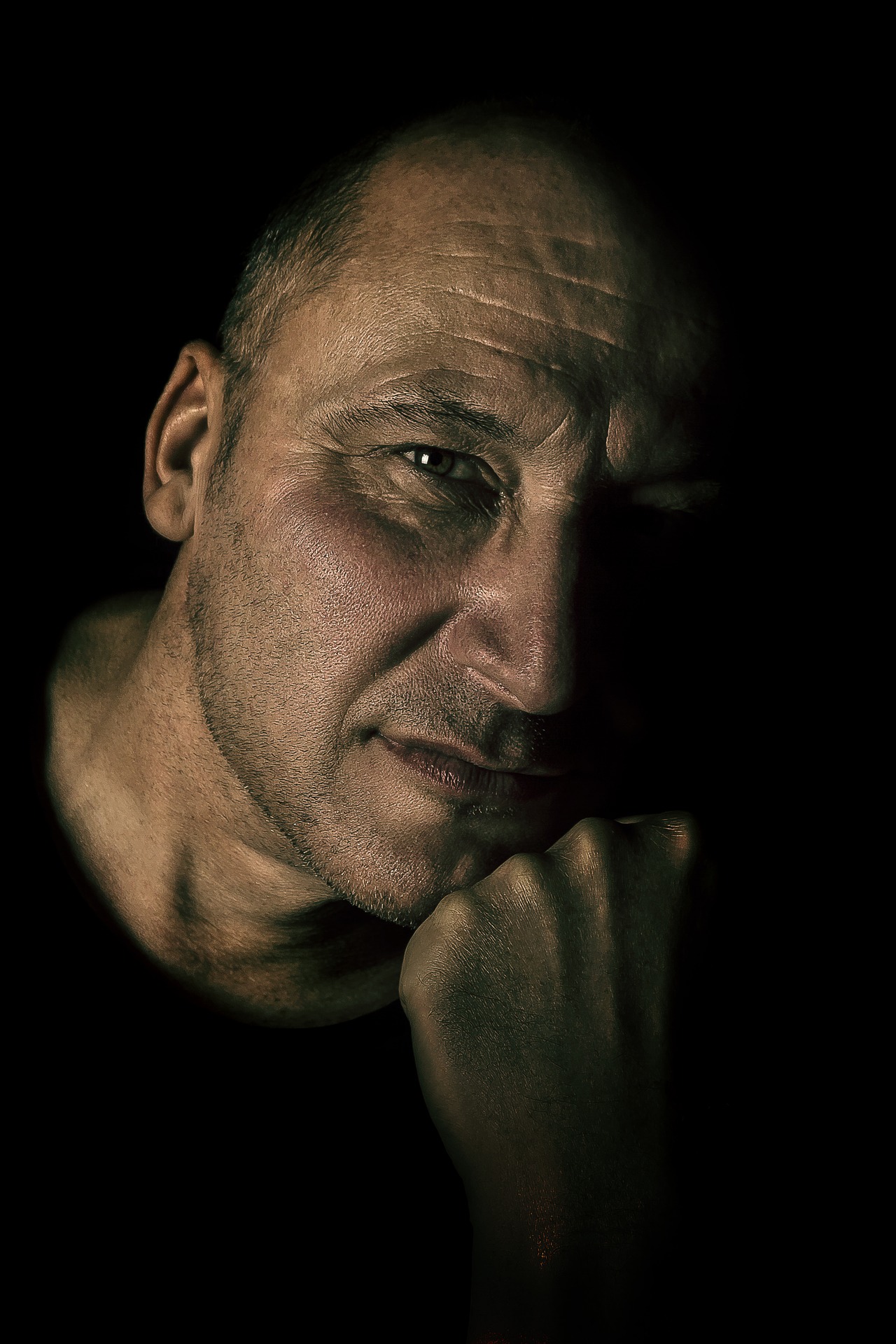Oxymorphone addiction, though not as common as that associated with oxycodone, can occur in individuals who begin abusing their medication or someone else’s. Professional rehab is required to treat this issue, as oxymorphone is a narcotic that can cause severe addiction and death in the case of overdose. Call 800-934-1582(Sponsored) to find rehab centers that will cater to your needs.
Oxymorphone Withdrawal Treatment
Many people who come into opioid rehab initially are struggling with withdrawal. The symptoms are not life threatening, but they can be incredibly painful and require professional treatment. Medications like clonidine, methadone, or buprenorphine can help treat withdrawal symptoms and minimize their severity so the individual can get through withdrawal without relapsing back to oxymorphone abuse.
However, as the National Institute on Drug Abuse states, “Medically assisted detoxification is only the first stage of treatment,” and further help is necessary afterward for the individual to make a full recovery.
Medications for Oxymorphone Addiction
According to the NIDA, “Several options are available” for the safe and effective treatment of prescription opioid addiction, of which oxymorphone (brand name Opana) is one.
Three of the main treatment types are medications. Methadone and buprenorphine can each be continued as maintenance drugs where the individual’s withdrawal symptoms and cravings will be reduced and they will be able to live their daily lives more easily without the fear of relapse. Both these drugs can be beneficial for an individual with oxymorphone addiction, but those who have more severe physical dependencies may want to use methadone specifically.
Naltrexone is the third pharmacological option for oxymorphone addiction treatment. The drug itself is often very beneficial for those who have a strong desire to end their prescription drug abuse, especially doctors, nurses, and professionals, but it can be a difficult treatment to stick with. It is not well tolerated by many patients because it will precipitate withdrawal in anyone dependent on opioids, and it blocks the effects of any opioid abuse. Still, it could be helpful under certain circumstances.
Behavioral Therapies for Oxymorphone Addiction
The use of behavioral therapies is essential during any rehab program. Cognitive-behavioral therapy, contingency management, and group therapy can all create a very beneficial program for patients working through their oxymorphone addiction by:
- Helping the patient learn better coping skills to avoid relapse.
- Teaching the patient to recognize and avoid their triggers.
- Allowing the patient the chance to speak to other individuals who are going through the same issues they are.
- Emphasizing beneficial activities that are consistent with a drug-free life.
Many treatment programs, especially those found in residential centers, offer more than one of these options to build a well-rounded treatment program for patients.
Seek Oxymorphone Addiction Treatment Now
Rehab centers that offer both pharmacological and therapeutic treatment options are often the best for oxymorphone addiction recovery. You can start with medically assisted withdrawal or maintenance before learning new ways to cope with your addiction and becoming prepared to live in recovery. Call 800-934-1582(Sponsored) now to find rehab centers that will meet your needs and allow you to recover in the safest and most effective way possible.
Heroin addiction is dangerous, and intensive treatment is often required for those attempting to recover from it. In many cases, long-term residential rehab is the best choice for heroin addiction treatment. Call 800-934-1582(Sponsored) to find rehab centers that will help you end your heroin abuse for good and live a safer, happier life in recovery.
What is Long-term Residential Rehab Like?
According to the National Institute on Drug Abuse, “Long-term residential treatment provides care 24 hours a day, generally in non-hospital settings.” It is usually an intensive program where treatment is highly structured and patients are expected to follow a strict schedule.
In addition to treatments specifically associated with their heroin addictions, patients also receive access to other kinds of programs including holistic methods, vocational, housing, legal, and educational help, and many other options.
Long-term residential rehab can be difficult on some individuals because of the distance from family and friends, but this can also be beneficial to your recovery as well. Getting away from the issues you face daily can allow you to see your addiction in a new light and focus more clearly on your treatment and recovery.
You will also receive excellent care from doctors, nurses, therapists, and many other professional healthcare providers while attending residential rehab in the long term.
Why is This Option Right for Heroin Addicts?
There are many reasons why heroin addicts would be likely to benefit from long-term residential rehab.
- Heroin addiction is often very severe and difficult to break. According to the Center for Substance Abuse Research, “The average heroin addict can spend up to $200 per day to maintain his or her addiction,” and many people keep abusing the drug even after they no longer experience the high they desire because they want to avoid the severe withdrawal symptoms. Residential care provides more intensive treatment, which is often necessary for those who are abusers of severely addictive drugs.
- Many heroin addicts have struggled for years to end their addiction to the drug. This kind of long-term abuse cannot be reversed with just a few weeks of treatment.
- Because of the many medical issues associated with heroin abuse, someone who has been participating in this behavior for years should have 24-hour access to medical care, especially early in recovery.
- Relapsing back to heroin abuse during or after early recovery and withdrawal is one of the most dangerous possible outcomes for an addict. This is because overdose is such a likely possibility at this point, and the individual could possibly die as a result. It is better for the person to be in a controlled environment for their initial treatment in order to safely move on to the next step of recovery.
Seek Residential Heroin Addiction Treatment Now
Call 800-934-1582(Sponsored) to find access to the treatment option that will be best for your needs as well as to learn more about heroin addiction and recovery in general. We can help you find a rehab center that will allow you to begin your recovery in the safest way possible and receive access to all the treatment options you require.
You can afford narcotic addiction rehab in many ways, some of the easiest and most beneficial of which include your insurance plan and financing your treatment costs to be paid over time. Call 800-934-1582(Sponsored) to find rehab programs that will take your needs into account and provide you with care that will benefit you.
Paying for Rehab

Insurance plans through the Health Insurance Marketplace help cover the cost of addiction treatment.
Most rehab centers accept insurance, and most insurance plans will help cover your treatment for narcotic addiction. According to Healthcare.gov, “All Marketplace plans cover mental health and substance abuse services as essential health benefits,” which means if you have a plan through the Health Insurance Marketplace, your treatment will be at least partially covered.
Addiction recovery is an important part of healthcare, and you will likely be able to receive help paying for it from your insurance program just as you would if you needed to visit your doctor for the flu.
Your plan likely won’t cover the entirety of your treatment, but this does not mean your program won’t be affordable. Copays are often part of healthcare costs for patients, and in most cases, you can finance the costs of your addiction rehab in order to receive the help you need now and to be able to pay back your costs as you can. Paying for addiction rehab is easy and very possible when you understand what your insurance plan is able to cover and how you can finance your own costs as you recover.
Does Free Narcotic Treatment Exist?
Yes, free options for narcotic treatment do exist. According to the Substance Abuse and Mental Health Services Administration, the facilities that do offer treatment at no charge or on a sliding fee scale do so “based on income and other factors” in order to ensure that those who truly need these options are able to receive them before anyone else.
If you can pay for rehab, there are options available to you to make your payments lower or to provide you with the program you need at a price that is affordable to you. It is better not to seek free treatment unless you truly need it, as you might be taking it away from someone who does. Addiction treatment is healthcare after all, and healthcare usually does come with a cost.
Is Narcotic Addiction Treatment Affordable?
The cost of your rehab will depend heavily on the program itself, the treatment options it offers, and the length of program. You can find affordable programs that will offer the options you require, and we can absolutely help you do so.
It is important to remember as well that cost shouldn’t be the only deciding factor when attempting to choose a treatment program, and we will also help you find the rehab facility that will offer you the most beneficial care for your particular situation.
Call 800-934-1582(Sponsored) now to receive help finding the best treatment options available. We can also tell you if a particular program will take your insurance and if the facility offers the options you require for a safe, effective recovery.
Opioid abuse and addiction causes many issues in the life of the addict and their loved ones. In order to receive the most beneficial treatment program possible, you should attend inpatient care for your recovery needs. Call 800-934-1582(Sponsored) to find the best residential rehab options for your particular situation.
1. Opioids Are Widely Available
According to Harvard Medical School, “Opiates are outranked only by alcohol as humanity’s oldest, most widespread, and most persistent drug problem.” Part of the reason for this is because these drugs are widely available and always have been. Attending inpatient care for narcotic abuse can ensure that you will not be tempted to relapse, as the drug will not be as readily available to you in this controlled environment.
2. Withdrawal Can Be Severe
Many people believe that, because narcotic withdrawal does not cause deadly side effects, it is not dangerous and that detox can be performed at home. Actually, those who do have a high risk of returning to drug abuse because they cannot handle the severe flu-like and painful symptoms caused by the withdrawal syndrome. It is much safer to attend residential detox and then to transition into addiction rehab.
3. Opioid Abuse Can Be Deadly
The National Institute on Drug Abuse for Teens states, “Taking just one large dose [of these drugs] could cause serious breathing problems that lead to death.” Many people who first enter addiction treatment are in an overdose situation and will require intensive, 24-hour care to ensure this does not happen.
Even if you have not experienced this issue when entering treatment, relapse is much more likely to lead to deadly overdose during or after withdrawal, so it is better to be in a safe, controlled environment at this time.
4. More Treatment Options Are Available
Inpatient rehab centers are known for providing more treatment options to patients. These facilities have more resources than outpatient centers, and it can be helpful to attend a well-rounded treatment program with more options when in need of narcotic abuse rehab.
5. Inpatient Care Is Better for Co-occurring Disorders
There is a strong possibility that, as a narcotic abuser, you could also be suffering from another co-occurring mental disorder. If this is so, residential care will be a much safer option for you, providing you with intensive medical care that will be able to treat both your disorders simultaneously, a necessity in this case. If you have not been checked for any co-occurring mental disorders, see your doctor right away.
6. It Will Keep Your Recovery On Track
Inpatient treatment is the most intensive option for addiction rehab, and it is usually much safer and more effective to start out with this method. You can learn to control your substance abuse and the symptoms of your disorder in this program before moving on to outpatient care or another, less rigorous method. This is perhaps the safest way to recover from narcotic abuse.
Seek Narcotic Addiction Treatment Now
Call 800-934-1582(Sponsored) to find inpatient rehab options that can help you recover from narcotic abuse. Our facilities provide the safest, most effective options available as well as treatment programs that cater to each individual patient. Call now.
Narcotics, as they are all opiate drugs that come from the same general source, can all cause addiction. However, one can avoid this issue by not abusing these substances. Once abuse begins, though, addiction treatment will be necessary, so call 800-934-1582(Sponsored) if you have been abusing narcotics of any kind.
Why Do All Narcotics Cause Addiction?
According to the National Library of Medicine, “These drugs can be abused and [may become] habit-forming.” This means they can cause addiction, which occurs when an individual no longer has control over the frequency or amount of their drug abuse. Many people who become addicted to narcotics seek out the drug even to their own detriment because they cannot force themselves through willpower alone to stop.
When abused, these drugs actually change the way the brain works, which is why treatment is necessary in order to change it back. A person who abuses any narcotic consistently will soon experience these issues because all opioids––prescription and illicit––cause similar reactions in the brain when taken in high doses.
Will I Become Addicted to Narcotics?
If you refrain from abusing these drugs, you will not become addicted. Many individuals take prescription narcotics for pain and, by following the advice of their doctors and only taking the amount they are prescribed, they avoid any issues associated with addiction.
However, according to the Drug Enforcement Administration, “Besides their medical use, narcotics/opioids produce a general sense of well-being by reducing tension, anxiety, and aggression.” This is why these drugs are abused often, even by those who know abuse is dangerous.
If you have been taking narcotics as prescribed for a long period of time, chances are you will eventually become physically dependent on these drugs, an issue that requires patients to safely be weaned off the drug. However, those individuals who do abuse these substances also experience issues with cravings, compulsive drug seeking, and other problems that require long-term addiction treatment.
All narcotics can cause this problem and will require addiction treatment if the individual has been abusing them and is experiencing addictive symptoms.
How Do I Find Narcotic Addiction Treatment?
Call 800-934-1582(Sponsored) today. We will help you find a treatment program that will fit your needs as well as allow you to make the changes you hope to see in your life. Addiction recovery can also assist you in mending relationships with your family members, dealing with legal issues, finding a new job, and solving many other problems consistently associated with drug abuse and addiction. In addition, we will help you determine your payment options and find rehab programs where your insurance is accepted.
Because all narcotics can cause addiction when abused, it is important to realize how misusing any one of these substances, prescription or illicit, is extremely dangerous and requires professional care. Call now to find a treatment center that will help you begin your recovery from narcotic abuse and avoid the other dangerous consequences associated with misusing these drugs, including severe respiratory depression, coma, painful withdrawal symptoms, and—in some cases—death.
Yes, many narcotic addiction treatment programs can help you find a job as well as assist you in preparing a resume, participating in interviews, and generally working on your hirability. Call 800-934-1582(Sponsored) today if you would like to find a treatment center that offers these options in addition to other treatments that are beneficial to opioid addicts.
Methadone Maintenance Treatment––And Other Opioid Addiction Rehab Options
Methadone maintenance treatment (or MMT) is a program that dispenses methadone to patients in a safe, controlled environment where the individual can also get access to medical care pertaining to their drug abuse.
According to the National Institute of Justice, “In addition to administering medication, MMT also involves providing patients with comprehensive rehabilitation services.” These additional services can often include vocational counseling and job help for those individuals who need it.
Inpatient MMT programs are often more likely to provide this kind of help on-site to patients, but outpatient centers may do so by referring patients to another facility. While other rehab centers and programs that focus specifically on narcotic addiction treatment may also provide this type of care to patients, it is more you will find direct, on-site help in residential centers.
Because treatment is meant to be inclusive and to cater to all the needs of the individual patient (even those not pertaining to their drug abuse), it is important for you to seek out a rehab program that does offer help in finding a job.
What Job Help Options Do Rehab Centers Provide?
Different programs may provide different means of help to patients looking for jobs. For example, an individual who requires coaching in order to find the right job for their current state as well as their skill level will often receive counseling sessions to more easily find the right option for their needs.
Resume building classes are also often offered in many inpatient rehab centers for those who need help explaining gaps in their employment or just require assistance building an effective resume in general.
Another option many residential rehab centers utilize is a work program that helps individuals transition into a job as part of their aftercare. All of these options can be incredibly helpful in allowing you to find a job that fits your needs either during or after your leave rehab.
Can I Find a Job Through My Treatment Program?
Recovery support services, as stated by the New Hampshire Department of Health and Human Services, is meant to be meet all the needs associated with a particular addict, and inpatient centers are very likely to have this option on site. While outpatient centers often refer patients to other programs to find vocational guidance, these programs do not usually provide as many options as inpatient treatment centers do.
You can find a job through treatment if this is something you require and depending on the treatment program you choose. We can help you find a rehab center that offers vocational assistance as well as the treatment options you need to overcome opioid addiction. For more information, and to speak to a recovery expert, call 800-934-1582(Sponsored) now.
Insurance is one of the many payment options available for those looking to attend professional addiction treatment. We will help you find a rehab program that will work with your insurance and provide you with the care you need. Call 800-934-1582(Sponsored) now.
Insurance and Addiction Treatment
According to the Substance Abuse and Mental Health Services Administration, “The Affordable Care Act in conjunction with the Mental Health Parity and Addiction Equity Act (MHPAEA) of 2008 has already provided an opportunity for new or expanded behavioral health benefits to approximately 60 million Americans and has created programs designed to help states and communities prevent illness and promote health.”
These programs have made it more likely that your insurance will help pay for your rehab and that you will be able to receive access to the treatment program you need most.
Mental and substance use disorders are now considered an essential health benefit, which means any insurance plan sold through the Health Insurance Marketplace must cover them. Your plan likely offers coverage to a certain extent for professional and effective narcotic addiction treatment, and it is important that you find out as much about it as possible while choosing a rehab center.
Will My Insurance Cover All My Treatment Expenses?
This depends heavily on your plan and your insurance company.
Most policies do not cover all of the treatment expenses, and patients are required to take on a co-pay of a certain amount. Still, this is a common occurrence with other types of healthcare options, and while it is important to know how much you will be paying out of pocket for a certain facility, there are many options to help you make your co-pay.
For example, you can often finance your treatment costs so that you will only need to pay a specified amount each month.
How Do I Find Facilities that Will Work with My Insurance?
Like other treatment options, not every insurance company works with every addiction treatment center. However, you can find out if your plan will cover your treatment at a certain facility––and how much of it will be covered––before you begin your program.
According to the National Institute on Drug Abuse, “Treatment for drug abuse and addiction is delivered in many different settings using a variety of behavioral and pharmacological approaches,” and we can help you find the one that works for you as well as work with your insurance program.
Call 800-934-1582(Sponsored) to speak to one of our recovery experts and find treatment options that will cater to your needs. In addition, we will help ensure that the program you choose will accept your insurance and provide you with the best options for you.
We can also answer any questions you may have about narcotic abuse and addiction, its symptoms, your recovery, and your treatment program itself. Attending professional treatment is absolutely necessary for those suffering from narcotic addiction, and you can make a change to your life right now by doing so. Call us today.
Addiction makes you feel out of control. Essentially everything feels as if it is moving too fast or as if you have no decision making power. Shared decision making allows you to take some control over your narcotics treatment.
What Is Shared Decision Making?
According to the Annals of Family Medicine, shared decision making is the process in which care providers work together with the individual in order to make sure that narcotics treatment is successful. Previously, doctors, therapists, and family members made decisions about an addict’s treatment.
In shared decision making, the patient is the most important member of the decision making team. They decide which treatments they want and which they do not. It is part of the push toward more client centered treatment.
Why Is It Beneficial to Treatment?
Shared decision making gives control back to the patient, rather than leaving it in the hands of the doctor. Most people who engage in shared decision making find their narcotics treatment is more successful. The patient has the choice between:
- Medication tapering therapy
- Medication management
- Methadone
- Suboxone
- Individual counseling
- Holistic therapies
- Eastern medicine
- Group counseling
- Withdrawal without medication
- A variety of other treatments
They can choose any combination of treatments that they believe will work for them. Though they are not the only decision maker, they are the key when it comes to the types of treatment they want. If any of these treatments interest you, we can help you find a treatment center that specializes in it. All you have to do is call Narcotics.com at 800-934-1582(Sponsored) .
This type of treatment also gives the patient:
- Purpose in their treatment
- Self-management
- Knowledge of what to expect and what people expect from them
- The ability to request different supports from the care giving team
Fortunately, shared decision making is rapidly becoming part of the addiction recovery process, according to the Substance Abuse and Mental Health Services Administration.
Who Is Involved in Shared Decision Making?
Although the patient is key in shared decision making, an entire team is there to help them decide which types of treatment might work best for them. The treatment team usually consists of family members, doctors, pain management specialists, therapists, holistic practitioners, a patient adviser, and a care coordinator. Each member of the team helps the patient manage their care.
How to Find a Treatment Center That Specializes in Shared Decision Making
Although shared decision making is relatively new in the field of narcotics treatment, many centers already offer it as part of their overall treatment program. To find a treatment center that offers shared decision making, call Narcotics.com at 800-934-1582(Sponsored) . We can help you end your narcotics addiction once and for all.
Knowing when to seek treatment isn’t always easy, but try to remember that it is never too early––or too late––to ask for help. Call 800-934-1582(Sponsored) now to find safe, reliable treatment options in facilities that will cater to your needs.
Seeking Treatment for Early Abuse
Some individuals realize early on that they require help for narcotic abuse. You may have begun misusing your prescription medication or taking someone else’s drugs, but the important thing is that you realize you need help. As stated by the Drug Enforcement Administration, people obtain narcotics from “friends, family members, medicine cabinets, pharmacies, nursing homes, hospitals, hospices, doctors, and the Internet.”
The moment you realize how dangerous your opioid use is and that you should seek help, it is important to do so immediately.
Treatment can still be helpful during early abuse. While you may not yet be severely addicted to the drug, you will still likely struggle with some withdrawal symptoms if you have been taking opioids regularly for a month or more.
Medically assisted withdrawal can ensure your symptoms will be less severe and that you will be able to recover as safely as possible without the potential of relapse.
Seeking Treatment for Addiction
Some individuals do not realize they need help until they are already addicted to a drug. The National Institute on Drug Abuse states, “Long-term use results in significant changes in brain function that can persist long after the individual stops using drugs,” and it becomes almost impossible for someone to fight these changes––let alone reverse them in a permanent way––without the help of rehab.
If you realize that your drug abuse has gotten out of your control, that you are severely dependent on and addicted to narcotics, and you are experiencing dangerous and unhealthy side effects, you absolutely must seek treatment.
You can make a change in your life, even at a point where you have been abusing narcotics for a long time, but you will need the tools to do so. Addiction rehab can help you in this way, and even those who have been abusing opioids for a long period of time can begin to slowly make a change to their lives.
Seek Treatment Now
The best time to seek treatment is when you realize you may have a problem. Even if your problem is small now, it can become worse over time if you continue to ignore it. Realizing you need help and finding it is the first step toward getting better, toward making a change.
You should never wait to seek help for narcotic abuse. Opioids can cause severe respiratory depression when abused in high doses, as well as a number of other serious side effects, and overdose can be deadly. It is necessary that you get help immediately and begin rehab as soon as you can in order to have the safest, strongest recovery possible.
Don’t leave yourself in a dangerous situation; call 800-934-1582(Sponsored) to find treatment options that will help you and to speak with one of our recovery experts about specific facilities, payment plans, and more. Call now.
12-step programs like Narcotics Anonymous can be very beneficial to certain individuals. You can also attend one of these programs during and after professional rehab. Call 800-934-1582(Sponsored) to find rehab centers that will help you and provide the treatment options you require.
What is Narcotics Anonymous?

NA meetings provide a safe and welcoming environment for those in recovery to share their experiences.
According to the Substance Abuse and Mental Health Administration, Narcotics Anonymous promotes “recovery from drug addiction through a 12-step program including regular attendance at group meetings.” The well-known Alcoholics Anonymous and its 12 steps were tweaked to fit those who have been abusing dangerous drugs and require peer support for recovery in a safe and welcoming environment.
While the title of the group suggests they only focus on those addicted to opioid-based drugs, the group is open to anyone struggling with the abuse of mind-altering substances, including alcohol.
Is It an Approved Treatment Program for Narcotic Addiction?
The program is of particular benefit to many addicts, but it is not a professional treatment option for narcotic abusers. However, many treatment programs do utilize it as a part of rehab and as an aftercare option. As stated by the National Institute on Drug Abuse, “These groups offer an added layer of community-level social support to help people in recovery with abstinence and other healthy lifestyle goals.”
In most cases, those who begin a 12-step program like NA during rehab focus on the first 6 steps during their early treatment and take on the other 6 afterward. There are many rehab programs that help facilitate a patient’s ability to join this group, and many counselors who actually spend time working with patients on their preconceived notions about support groups in order to help them join one.
Is NA Right for Me?
Depending on your needs, the program could be incredibly beneficial to you. The 12 steps outline a path to recovery that involves discussing your needs and experiences with other addicts and going on your own journey of self-discovery and betterment.
While NA is not right for everyone, it could not hurt to attend a meeting and find out for yourself if the program makes you feel comfortable and supported in order to possibly add another layer of assistance to your treatment and recovery. There are other recovery support groups available if NA is not the right fit for you.
Many people who join programs like NA do so because they lack the type of social support they require to get through recovery, or they have support at home but they are helped and comforted by the peer discussion that occurs between multiple recovering addicts.
The program is free to attend as many times as you like, and meetings can be found almost anywhere. NA could very potentially be for you, but the best way to find out for certain is to attend a meeting.
Seek Narcotic Addiction Help Now
We can help you find an addiction rehab program that utilizes effective treatment options like behavioral therapy, medications, holistic options, and Narcotics Anonymous. Call 800-934-1582(Sponsored) to find professional rehab centers that will aid in your recovery and to begin healing in the best way for you.

















